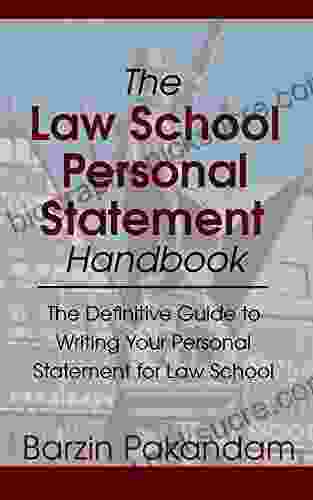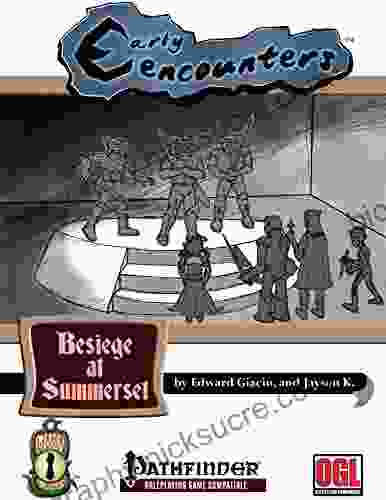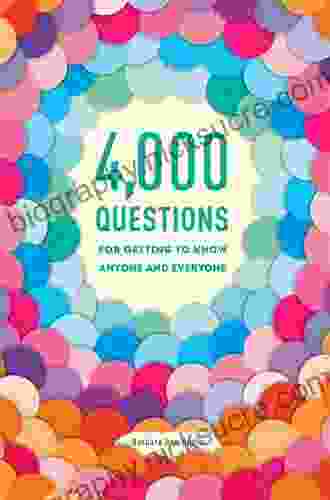Using Science to Understand Frustration, Rage, and Forgiveness

Emotions are an integral part of our human experience, influencing our thoughts, behaviors, and interactions with others. Among the wide range of emotions we feel, frustration, rage, and forgiveness are particularly nuanced and complex.
4.6 out of 5
| Language | : | English |
| File size | : | 2358 KB |
| Text-to-Speech | : | Enabled |
| Screen Reader | : | Supported |
| Enhanced typesetting | : | Enabled |
| Word Wise | : | Enabled |
| Print length | : | 89 pages |
Science, with its rigorous methods and empirical findings, has shed light on the neural underpinnings of these emotions, helping us better understand their nature, causes, and consequences. This article will delve into the scientific research on frustration, rage, and forgiveness, exploring their neurological mechanisms, behavioral manifestations, and implications for our overall well-being.
Frustration: The Science Behind the Boil
Frustration is a common emotion triggered by obstacles that prevent us from achieving our goals. It can range from mild annoyance to intense anger and may manifest as irritability, impatience, or aggression.
Neuroimaging studies have identified the anterior insula, a brain region associated with self-awareness and emotion, as a key player in processing frustration. When confronted with obstacles, increased activity in the anterior insula signals a mismatch between our expectations and reality, triggering feelings of frustration.
Moreover, the release of stress hormones like cortisol and adrenaline during frustration prepares the body for a fight-or-flight response. This physiological reaction can lead to increased heart rate, tightened muscles, and reduced cognitive function, further amplifying the intensity of the emotion.
Rage: Unraveling the Neural Storm
Rage, an extreme form of anger, is characterized by intense feelings of hostility, fury, and aggression. It can be a destructive emotion, both for the individual experiencing it and those around them.
Research has shown that rage involves activation of the amygdala, a brain structure responsible for processing fear and aggression. When triggered, the amygdala sends signals to other brain regions, including the hypothalamus and brainstem, which prepare the body for a physical confrontation.
Additionally, rage is associated with increased levels of testosterone, a hormone linked to dominance and aggression. This hormonal surge further fuels the intense emotional and physical reactions that accompany rage.
Forgiveness: The Path to Emotional Healing
Forgiveness, in contrast to frustration and rage, is a complex emotion that involves letting go of anger, resentment, and negative thoughts towards a person who has wronged us. It is often seen as a path to emotional healing and personal growth.
Neurological studies have revealed that forgiveness is associated with activation of the prefrontal cortex, a brain region involved in higher-order cognitive functions such as empathy and perspective-taking. When we forgive, the prefrontal cortex helps us to process and reframe the offense, leading to a shift in our emotional response towards the perpetrator.
Moreover, forgiveness has been linked to reduced activity in the amygdala, suggesting that it dampens the emotional intensity of negative memories. It also triggers the release of oxytocin, a hormone associated with love, bonding, and trust.
Implications for Our Lives: Harnessing the Power of Science
Understanding the science behind frustration, rage, and forgiveness has practical implications for our daily lives. By recognizing the neural mechanisms and behavioral manifestations of these emotions, we can develop better strategies for managing them in a healthy and constructive way.
For instance, recognizing the role of the anterior insula in frustration can help us to identify and address the underlying causes of our frustration, reducing the likelihood of aggressive or impulsive reactions.
Understanding the neural storm of rage can empower us to develop coping mechanisms that prevent it from escalating into destructive behavior. Practicing mindfulness techniques, engaging in physical activity, or seeking professional help can help to regulate rage and mitigate its negative consequences.
Harnessing the science of forgiveness can lead us towards a path of emotional healing and personal growth. By cultivating empathy, practicing perspective-taking, and seeking support, we can overcome the negative effects of past hurts and rebuild positive relationships.
Frustration, rage, and forgiveness are powerful emotions that shape our experiences and interactions. Through the lens of science, we have gained valuable insights into the neural underpinnings, behavioral manifestations, and implications of these emotions.
By understanding the science behind these emotions, we can equip ourselves with the tools to manage them effectively, promote emotional well-being, and foster healthier and more fulfilling lives.
4.6 out of 5
| Language | : | English |
| File size | : | 2358 KB |
| Text-to-Speech | : | Enabled |
| Screen Reader | : | Supported |
| Enhanced typesetting | : | Enabled |
| Word Wise | : | Enabled |
| Print length | : | 89 pages |
Do you want to contribute by writing guest posts on this blog?
Please contact us and send us a resume of previous articles that you have written.
 Fiction
Fiction Non Fiction
Non Fiction Romance
Romance Mystery
Mystery Thriller
Thriller SciFi
SciFi Fantasy
Fantasy Horror
Horror Biography
Biography Selfhelp
Selfhelp Business
Business History
History Classics
Classics Poetry
Poetry Childrens
Childrens Young Adult
Young Adult Educational
Educational Cooking
Cooking Travel
Travel Lifestyle
Lifestyle Spirituality
Spirituality Health
Health Fitness
Fitness Technology
Technology Science
Science Arts
Arts Crafts
Crafts DIY
DIY Gardening
Gardening Petcare
Petcare Christopher Taylor Ma Lmft
Christopher Taylor Ma Lmft Sam Kean
Sam Kean Ryan A Pedigo
Ryan A Pedigo Beau Bradbury
Beau Bradbury Boy Scouts Of America
Boy Scouts Of America Ian Leslie
Ian Leslie Jim Wharton
Jim Wharton Breanna Hayse
Breanna Hayse F William Lawvere
F William Lawvere Reprint Edition Kindle Edition
Reprint Edition Kindle Edition Jennifer Pharr Davis
Jennifer Pharr Davis Kenneth Wilgus Phd
Kenneth Wilgus Phd Nadine Hays Pisani
Nadine Hays Pisani Kate Williams
Kate Williams Mike Commito
Mike Commito Baruch Englard
Baruch Englard Reelav Patel
Reelav Patel John C Norcross
John C Norcross Stephanie Fritz
Stephanie Fritz Basudeb Bhatta
Basudeb Bhatta Gordon Witteveen
Gordon Witteveen Jennifer Traig
Jennifer Traig Martin Sternstein
Martin Sternstein Dr Craig Malkin
Dr Craig Malkin Constanze Niedermaier
Constanze Niedermaier Bagele Chilisa
Bagele Chilisa Burt L Standish
Burt L Standish Jane Hardwicke Collings
Jane Hardwicke Collings R L Medina
R L Medina Jennifer Estep
Jennifer Estep Stephen K Sanderson
Stephen K Sanderson Barry Johnston
Barry Johnston Michelle Rigler
Michelle Rigler W Hamilton Gibson
W Hamilton Gibson Edith Grossman
Edith Grossman Chadd Vanzanten
Chadd Vanzanten Ping Li
Ping Li Max Marchi
Max Marchi Bruce Pascoe
Bruce Pascoe Elizabeth Lockwood
Elizabeth Lockwood Stanislas Dehaene
Stanislas Dehaene Julie L Spencer
Julie L Spencer Dustin Salomon
Dustin Salomon John G Robertson
John G Robertson Temple West
Temple West John Kimantas
John Kimantas Jean Illsley Clarke
Jean Illsley Clarke Jenny Chandler
Jenny Chandler Arnold G Nelson
Arnold G Nelson Wanda Priday
Wanda Priday Gary Soto
Gary Soto William H Frey
William H Frey Rob Rains
Rob Rains Dave Rearwin
Dave Rearwin Conor Nolan
Conor Nolan Titus M Kennedy
Titus M Kennedy Laura Pavlov
Laura Pavlov Richard Meadows
Richard Meadows Ellen Lewin
Ellen Lewin Alexandra Andrews
Alexandra Andrews James Syhabout
James Syhabout Mark Young
Mark Young David Aretha
David Aretha Jeff Alt
Jeff Alt Monica Hesse
Monica Hesse Alastair Hannay
Alastair Hannay Clifford Herriot
Clifford Herriot Dave Karczynski
Dave Karczynski Sharon Dukett
Sharon Dukett Nichole Carpenter
Nichole Carpenter Eric Franklin
Eric Franklin Diane Yancey
Diane Yancey Elizabeth George Speare
Elizabeth George Speare Kit Yates
Kit Yates T H White
T H White Joshua G Shifrin
Joshua G Shifrin Gabriyell Sarom
Gabriyell Sarom John Sandford
John Sandford Frederick Douglass Opie
Frederick Douglass Opie Mark Mayfield
Mark Mayfield Mike Loades
Mike Loades Beau Miles
Beau Miles Paul Doiron
Paul Doiron Harvey Wittenberg
Harvey Wittenberg Gerald Beaudry
Gerald Beaudry Steve Burrows
Steve Burrows Kate Darling
Kate Darling Joanne Glenn
Joanne Glenn Prince Asare
Prince Asare Lynn Rosen
Lynn Rosen Peter Wacht
Peter Wacht Barry Rhodes
Barry Rhodes Charles Buist
Charles Buist Barbara Rogoff
Barbara Rogoff Sara Shepard
Sara Shepard Mike High
Mike High Daniel S Lobel Phd
Daniel S Lobel Phd James Kilgo
James Kilgo Randy Baker
Randy Baker Shmuel Peerless
Shmuel Peerless Visual Arts
Visual Arts Arny Alberts
Arny Alberts Scott Westerfeld
Scott Westerfeld Rick Joyner
Rick Joyner Monta Z Briant
Monta Z Briant Grey Owl
Grey Owl Lock Gareth
Lock Gareth Jesse Liberty
Jesse Liberty Rebecca Rupp
Rebecca Rupp Matt Taddy
Matt Taddy Sam Harris
Sam Harris Ron Lemaster
Ron Lemaster James Koeper
James Koeper Philip Maffetone
Philip Maffetone John J Robinson
John J Robinson Thomas French
Thomas French Chris Bennett
Chris Bennett Chiara Sparks
Chiara Sparks Richard Harris
Richard Harris Scarlett Thomas
Scarlett Thomas John Lister Kaye
John Lister Kaye Molly E Lee
Molly E Lee Barry J Kemp
Barry J Kemp Dacher Keltner
Dacher Keltner Meghan L Marsac
Meghan L Marsac Jaymin Eve
Jaymin Eve Isabel Fonseca
Isabel Fonseca Nicholas Wolterstorff
Nicholas Wolterstorff Rob Hutchings
Rob Hutchings Ben Goldacre
Ben Goldacre Ernie Morton
Ernie Morton Yuval Noah Harari
Yuval Noah Harari Linda Welters
Linda Welters David A Bogart
David A Bogart Denton Salle
Denton Salle Stephen J Bavolek
Stephen J Bavolek Jenn Mcallister
Jenn Mcallister Craig Martin
Craig Martin John Aldridge
John Aldridge Kam Knight
Kam Knight Linda Carroll
Linda Carroll Jim Fay
Jim Fay C R Hallpike
C R Hallpike Robin Knox Johnston
Robin Knox Johnston John Quick
John Quick Ken Xiao
Ken Xiao Jude Currivan
Jude Currivan Rachelle Zukerman
Rachelle Zukerman William Wasserman
William Wasserman Sampson Davis
Sampson Davis Print Replica Kindle Edition
Print Replica Kindle Edition Muhammad Zulqarnain
Muhammad Zulqarnain James Duggan
James Duggan Colleen Alexander Roberts
Colleen Alexander Roberts Mia Scotland
Mia Scotland W Scott Elliot
W Scott Elliot Shayla Black
Shayla Black Marc Loy
Marc Loy Donald R Gallo
Donald R Gallo Mike Massie
Mike Massie John H Mcwhorter
John H Mcwhorter Tom Miller
Tom Miller Pavla Kesslerova
Pavla Kesslerova Barbara Ann Kipfer
Barbara Ann Kipfer Violet Moller
Violet Moller Maha Alkurdi
Maha Alkurdi Fred Mitchell
Fred Mitchell Julie Buxbaum
Julie Buxbaum Farley Mowat
Farley Mowat Jeremy Sweet
Jeremy Sweet Craig Lambert
Craig Lambert Nicole Martin
Nicole Martin Dan Golding
Dan Golding Ryan T White
Ryan T White Chris Mooney
Chris Mooney Jack Newman
Jack Newman Christine Kenneally
Christine Kenneally Joshua Hammer
Joshua Hammer Christopher L Heuertz
Christopher L Heuertz Jenna Helland
Jenna Helland Pat Shipman
Pat Shipman Barbara Gastel
Barbara Gastel Michael Palin
Michael Palin Barbara Illowsk
Barbara Illowsk Barry Glassner
Barry Glassner Dan R Lynch
Dan R Lynch David Taylor
David Taylor Eliza Reid
Eliza Reid Erica B Marcus
Erica B Marcus Mackenzi Lee
Mackenzi Lee Jonathan Kellerman
Jonathan Kellerman Mitch Prinstein
Mitch Prinstein David Starbuck Smith
David Starbuck Smith Edwin R Sherman
Edwin R Sherman Nick Bollettieri
Nick Bollettieri Kathleen Masters
Kathleen Masters Nancy E Willard
Nancy E Willard Khurshed Batliwala
Khurshed Batliwala Steve Biddulph
Steve Biddulph Geert Hofstede
Geert Hofstede Sam Cowen
Sam Cowen Ellen Notbohm
Ellen Notbohm Mark Ellyatt
Mark Ellyatt S E Hinton
S E Hinton Bashir Hosseini Jafari
Bashir Hosseini Jafari Macauley Lord
Macauley Lord Yuki Mano
Yuki Mano Timothy Pakron
Timothy Pakron Lawrence Baldassaro
Lawrence Baldassaro St Louis Post Dispatch
St Louis Post Dispatch Graham R Gibbs
Graham R Gibbs John Henry Phillips
John Henry Phillips Hunbatz Men
Hunbatz Men Toby A H Wilkinson
Toby A H Wilkinson Blair Braverman
Blair Braverman Proper Education Group
Proper Education Group Nick Neely
Nick Neely Farzana Nayani
Farzana Nayani Tim Marshall
Tim Marshall Robert A Baruch Bush
Robert A Baruch Bush Percy Boomer
Percy Boomer Valerie Pollmann R
Valerie Pollmann R Richard Chun
Richard Chun Melissa Gomes
Melissa Gomes Daniel M Koretz
Daniel M Koretz Sam Nadler
Sam Nadler Peter Martin
Peter Martin Achille Rubini
Achille Rubini Becca Anderson
Becca Anderson J Bruce Brackenridge
J Bruce Brackenridge Daniel J Barrett
Daniel J Barrett Roy Porter
Roy Porter Scott Mactavish
Scott Mactavish Craig Romano
Craig Romano Lily Collins
Lily Collins Daniel P Huerta
Daniel P Huerta Eugene V Resnick
Eugene V Resnick Nina Manning
Nina Manning Simon Spurrier
Simon Spurrier Jay Abramson
Jay Abramson Jean Smith
Jean Smith Kindle Edition
Kindle Edition James M Collins
James M Collins Leslie Stager
Leslie Stager Brian Switek
Brian Switek Mick Conefrey
Mick Conefrey Jamie Margolin
Jamie Margolin Samantha Fitts
Samantha Fitts Melissa Haag
Melissa Haag Robin Mcmillan
Robin Mcmillan Cindy Post Senning
Cindy Post Senning Ryan Higa
Ryan Higa Bernard Marr
Bernard Marr T C Edge
T C Edge Cara Koscinski
Cara Koscinski Barry Rabkin
Barry Rabkin Barbara Russell
Barbara Russell Steven Hawthorne
Steven Hawthorne Ray Comfort
Ray Comfort Diane Cardwell
Diane Cardwell Chuck Missler
Chuck Missler Buddy Levy
Buddy Levy Beebe Bahrami
Beebe Bahrami Mike Swedenberg
Mike Swedenberg Geoffrey Finch
Geoffrey Finch Catherine M Cameron
Catherine M Cameron Jonathan Bergmann
Jonathan Bergmann Dustin Hansen
Dustin Hansen Jessica Smartt
Jessica Smartt Stefan Ecks
Stefan Ecks Pearson Education
Pearson Education Glenna Mageau
Glenna Mageau Cynthia Levinson
Cynthia Levinson Barry Burd
Barry Burd Vanessa Ogden Moss
Vanessa Ogden Moss Dr Faith G Harper
Dr Faith G Harper Joanna Hunt
Joanna Hunt Allan V Horwitz
Allan V Horwitz Steven Rinella
Steven Rinella Leon Mccarron
Leon Mccarron Jayanti Tambe
Jayanti Tambe Bob Holtzman
Bob Holtzman Tami Anastasia
Tami Anastasia Charlotte Browne
Charlotte Browne Susan Dennard
Susan Dennard Gordon H Chang
Gordon H Chang Chris Eberhart
Chris Eberhart Eric Leiser
Eric Leiser Jeffrey Jensen Arnett
Jeffrey Jensen Arnett Ben Collins
Ben Collins Ben Povlow
Ben Povlow Emily Chappell
Emily Chappell Betty Stone
Betty Stone Robert Ardrey
Robert Ardrey Spencer Wells
Spencer Wells Shannon Reilly
Shannon Reilly David Beaupre
David Beaupre Michael Wood
Michael Wood Patrick Sweeney
Patrick Sweeney Joseph Epes Brown
Joseph Epes Brown Master Gamer
Master Gamer Lynn Mann
Lynn Mann Malcolm Hebron
Malcolm Hebron Karen Bush
Karen Bush Mark Kurlansky
Mark Kurlansky Mykel Hawke
Mykel Hawke Diane Musho Hamilton
Diane Musho Hamilton Clayton King
Clayton King Nick Townsend
Nick Townsend Barry Friedman
Barry Friedman Kenton Kroker
Kenton Kroker V B Alekseev
V B Alekseev Erica Schultz
Erica Schultz Bill Mckibben
Bill Mckibben Hongyu Guo
Hongyu Guo Mark H Newman
Mark H Newman Elliott Vandruff
Elliott Vandruff Catherine Shainberg
Catherine Shainberg Tori Day
Tori Day David Jamieson Bolder
David Jamieson Bolder Scott Reed
Scott Reed Ron Avery
Ron Avery Crystal Duffy
Crystal Duffy Bb
Bb Julian I Graubart
Julian I Graubart Erik J Brown
Erik J Brown Linnea Dunne
Linnea Dunne Barbara Mertz
Barbara Mertz George Macdonald
George Macdonald Chase Hill
Chase Hill Helen Kara
Helen Kara Basu Shanker
Basu Shanker J Michael Veron
J Michael Veron Kara Tippetts
Kara Tippetts Lew Freedman
Lew Freedman David Abram
David Abram Thomas Bulfinch
Thomas Bulfinch Jack Andraka
Jack Andraka Anthony Edwards
Anthony Edwards J C Cervantes
J C Cervantes Holger Schutkowski
Holger Schutkowski Susan Nance
Susan Nance Jutta Schickore
Jutta Schickore Larry Dane Brimner
Larry Dane Brimner Carlo Collodi
Carlo Collodi Autumn Carpenter
Autumn Carpenter Ascencia
Ascencia Charlotte Booth
Charlotte Booth Cait Stevenson
Cait Stevenson John D Barrow
John D Barrow Graham Farmelo
Graham Farmelo P J Agness
P J Agness Barbara Taylor
Barbara Taylor Barbara Kennard
Barbara Kennard Marie Rutkoski
Marie Rutkoski Charlie Shamp
Charlie Shamp Jeff Belanger
Jeff Belanger Ronald Wheeler
Ronald Wheeler James Randi
James Randi Scott Malthouse
Scott Malthouse Catherine J Allen
Catherine J Allen Justin Sirois
Justin Sirois Richard H Immerman
Richard H Immerman Howard Zinn
Howard Zinn Rachel Smith
Rachel Smith Jen Houcek
Jen Houcek Leah Cullis
Leah Cullis Bobbie Faulkner
Bobbie Faulkner Noah Brown
Noah Brown Trish Kuffner
Trish Kuffner Leonard M Adkins
Leonard M Adkins Bryan Peterson
Bryan Peterson Jade Barrett
Jade Barrett Richard J Dewhurst
Richard J Dewhurst Charles Soule
Charles Soule Gay Robins
Gay Robins David Cockburn
David Cockburn Nicholas Sparks
Nicholas Sparks Mike Stanton
Mike Stanton Debbie M Schell
Debbie M Schell Mina Lebitz
Mina Lebitz Margaret Owen
Margaret Owen Deanna Roy
Deanna Roy Robin Nixon
Robin Nixon Ralph Galeano
Ralph Galeano John Whitman
John Whitman Marshall Jon Fisher
Marshall Jon Fisher Casey Watson
Casey Watson Tara Brach
Tara Brach Paul Van Lierop
Paul Van Lierop Editors Of Southern Living Magazine
Editors Of Southern Living Magazine Leia Stone
Leia Stone Gary Lincoff
Gary Lincoff Dr Michael P Masters
Dr Michael P Masters David Klausmeyer
David Klausmeyer Helen Fisher
Helen Fisher Barbara Neiman
Barbara Neiman Danny Staple
Danny Staple Oliver T Spedding
Oliver T Spedding Cheryl Erwin
Cheryl Erwin Babu The Panda
Babu The Panda Bonnie Tsui
Bonnie Tsui Bill Milliken
Bill Milliken Rebecca Solnit
Rebecca Solnit Mary A Fristad
Mary A Fristad Martin Dugard
Martin Dugard Wayne B Chandler
Wayne B Chandler Janis Keyser
Janis Keyser Beth Miller
Beth Miller Susan Scott
Susan Scott Jessica F Shumway
Jessica F Shumway Kyle Butler
Kyle Butler S K Gupta
S K Gupta Sergei Urban
Sergei Urban Emma Brockes
Emma Brockes Siddhartha Rao
Siddhartha Rao Benita Bensch
Benita Bensch Otto Scharmer
Otto Scharmer Thomas Lumley
Thomas Lumley Emma Walker
Emma Walker Donald Frias
Donald Frias Suzanne Leonhard
Suzanne Leonhard John Garrity
John Garrity Victor Seow
Victor Seow Richard Scott
Richard Scott Mike Allison
Mike Allison Sport Hour
Sport Hour Joseph Alton M D
Joseph Alton M D Candice Davie
Candice Davie Rachel Morgan
Rachel Morgan Joseph Schmuller
Joseph Schmuller Brad Burns
Brad Burns Charles River Editors
Charles River Editors Cary J Griffith
Cary J Griffith Vanessa Garbin
Vanessa Garbin Jill Brown
Jill Brown Jake Anderson
Jake Anderson James C Radcliffe
James C Radcliffe Barbara Bassot
Barbara Bassot Rhonda Belle
Rhonda Belle Bridget Flynn Walker Phd
Bridget Flynn Walker Phd Lewis Thomas
Lewis Thomas Kara Goucher
Kara Goucher Rowan Jacobsen
Rowan Jacobsen Smart Reads
Smart Reads Fabien Clavel
Fabien Clavel Steven Bell
Steven Bell Ben Sedley
Ben Sedley Massimo Cossu Nicola Pirina
Massimo Cossu Nicola Pirina Rob Pope
Rob Pope Hill Gates
Hill Gates Stan Tekiela
Stan Tekiela Chris Cage
Chris Cage Roanne Van Voorst
Roanne Van Voorst Yang Kuang
Yang Kuang Brian Gilbert
Brian Gilbert Tim Ingold
Tim Ingold James Duthie
James Duthie Debra Kilby
Debra Kilby Richard Weissbourd
Richard Weissbourd Hollis Lance Liebman
Hollis Lance Liebman Daniel T Willingham
Daniel T Willingham Mark Twain
Mark Twain Janna Levin
Janna Levin Barzin Pakandam
Barzin Pakandam Sean Mcindoe
Sean Mcindoe David Burch
David Burch Marco Grandis
Marco Grandis Suzanne Wylde
Suzanne Wylde Eric Engle
Eric Engle Robert Hogan
Robert Hogan David Thomas
David Thomas Vincent Bossley
Vincent Bossley Mark Rashid
Mark Rashid William Byers
William Byers Edward Lee
Edward Lee Brandon Royal
Brandon Royal Luke Gilkerson
Luke Gilkerson Laura Ingalls Wilder
Laura Ingalls Wilder Guy P Harrison
Guy P Harrison Jane Butel
Jane Butel Rachel Dash
Rachel Dash Peter K Tyson
Peter K Tyson Eddie Merrins
Eddie Merrins
Light bulbAdvertise smarter! Our strategic ad space ensures maximum exposure. Reserve your spot today!

 Jamie BlairNon-Mathematical Approach to Macmillan Study Skills: A Comprehensive Guide to...
Jamie BlairNon-Mathematical Approach to Macmillan Study Skills: A Comprehensive Guide to... Clay PowellFollow ·18.2k
Clay PowellFollow ·18.2k William WordsworthFollow ·16.1k
William WordsworthFollow ·16.1k Herb SimmonsFollow ·19.6k
Herb SimmonsFollow ·19.6k Dylan HayesFollow ·4.4k
Dylan HayesFollow ·4.4k W. Somerset MaughamFollow ·2.5k
W. Somerset MaughamFollow ·2.5k Sidney CoxFollow ·14.2k
Sidney CoxFollow ·14.2k Henry HayesFollow ·9.5k
Henry HayesFollow ·9.5k Chuck MitchellFollow ·2.2k
Chuck MitchellFollow ·2.2k
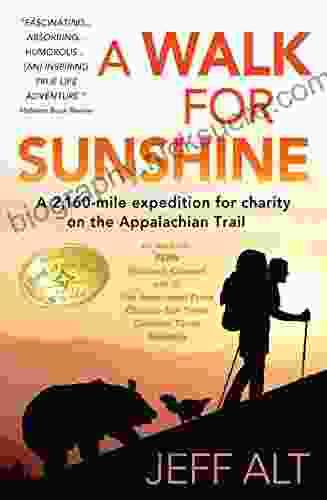
 Israel Bell
Israel BellEmbark on an Epic 160-Mile Expedition for Charity on the...
Prepare yourself for an...
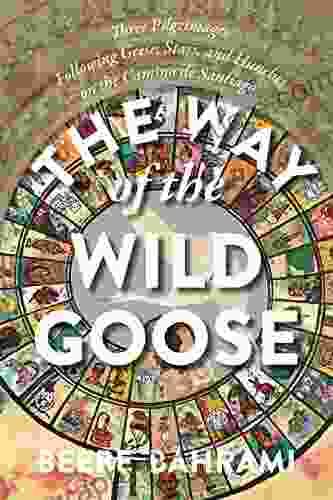
 Josh Carter
Josh CarterThe Way of the Wild Goose: A Journey of Embodied Wisdom...
The Way of the Wild Goose is an ancient...

 Allen Parker
Allen ParkerMastering the Art of Bean Fly Casting: A Comprehensive...
Fly fishing,...
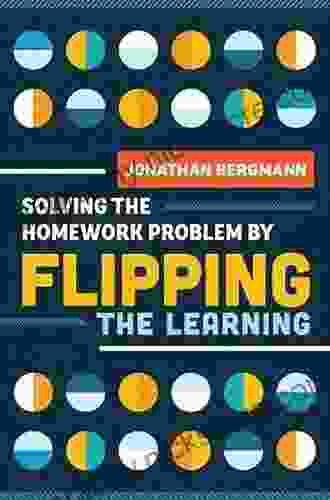
 Aaron Brooks
Aaron BrooksSolving the Homework Problem by Flipping the Learning
What is flipped...

 Fletcher Mitchell
Fletcher MitchellThe Jane Butel Library: A Renewed Source of Knowledge and...
The Jane Butel...
4.6 out of 5
| Language | : | English |
| File size | : | 2358 KB |
| Text-to-Speech | : | Enabled |
| Screen Reader | : | Supported |
| Enhanced typesetting | : | Enabled |
| Word Wise | : | Enabled |
| Print length | : | 89 pages |



